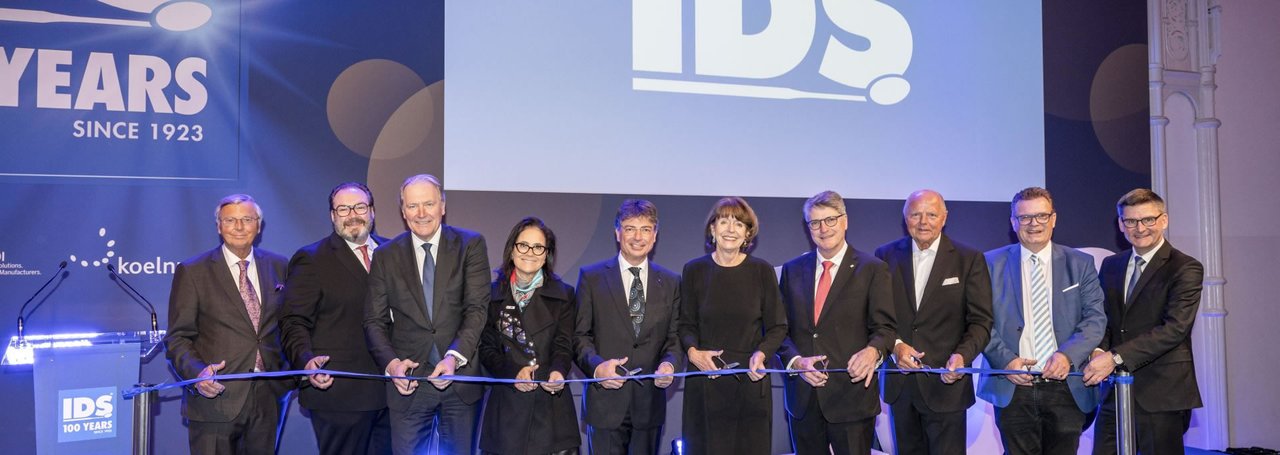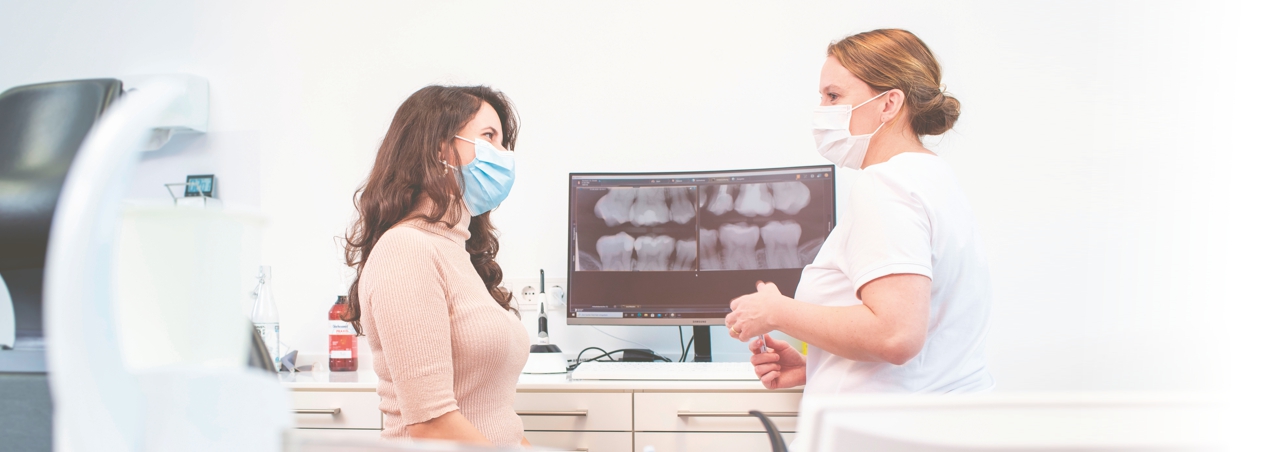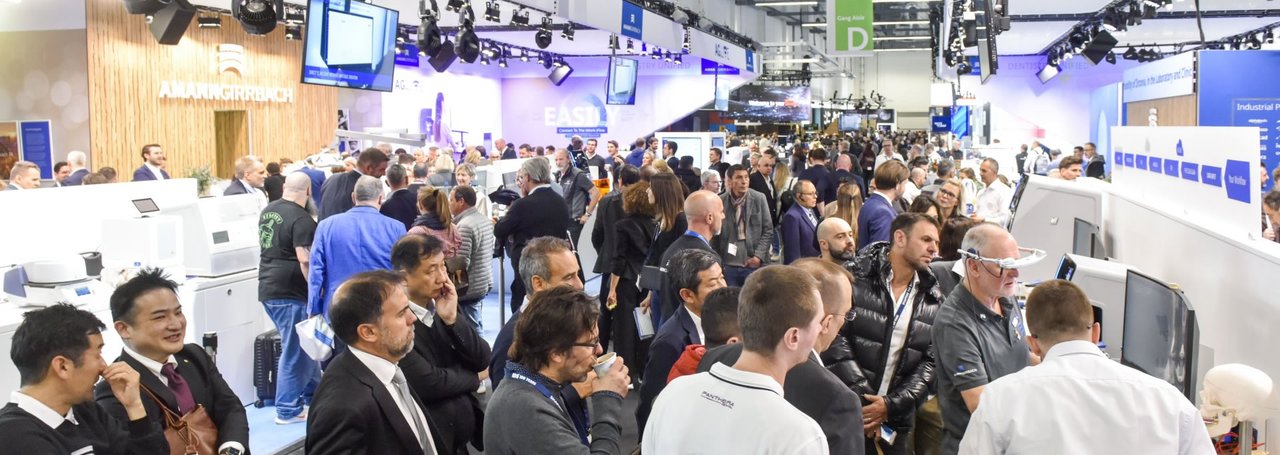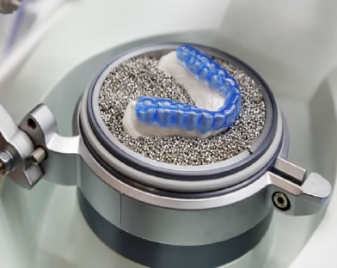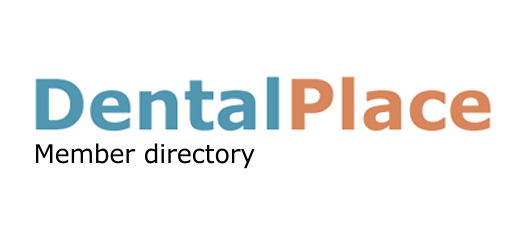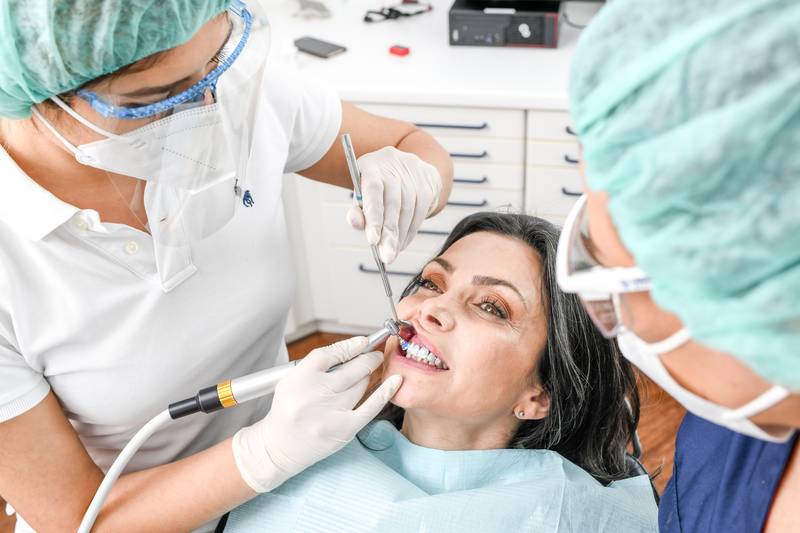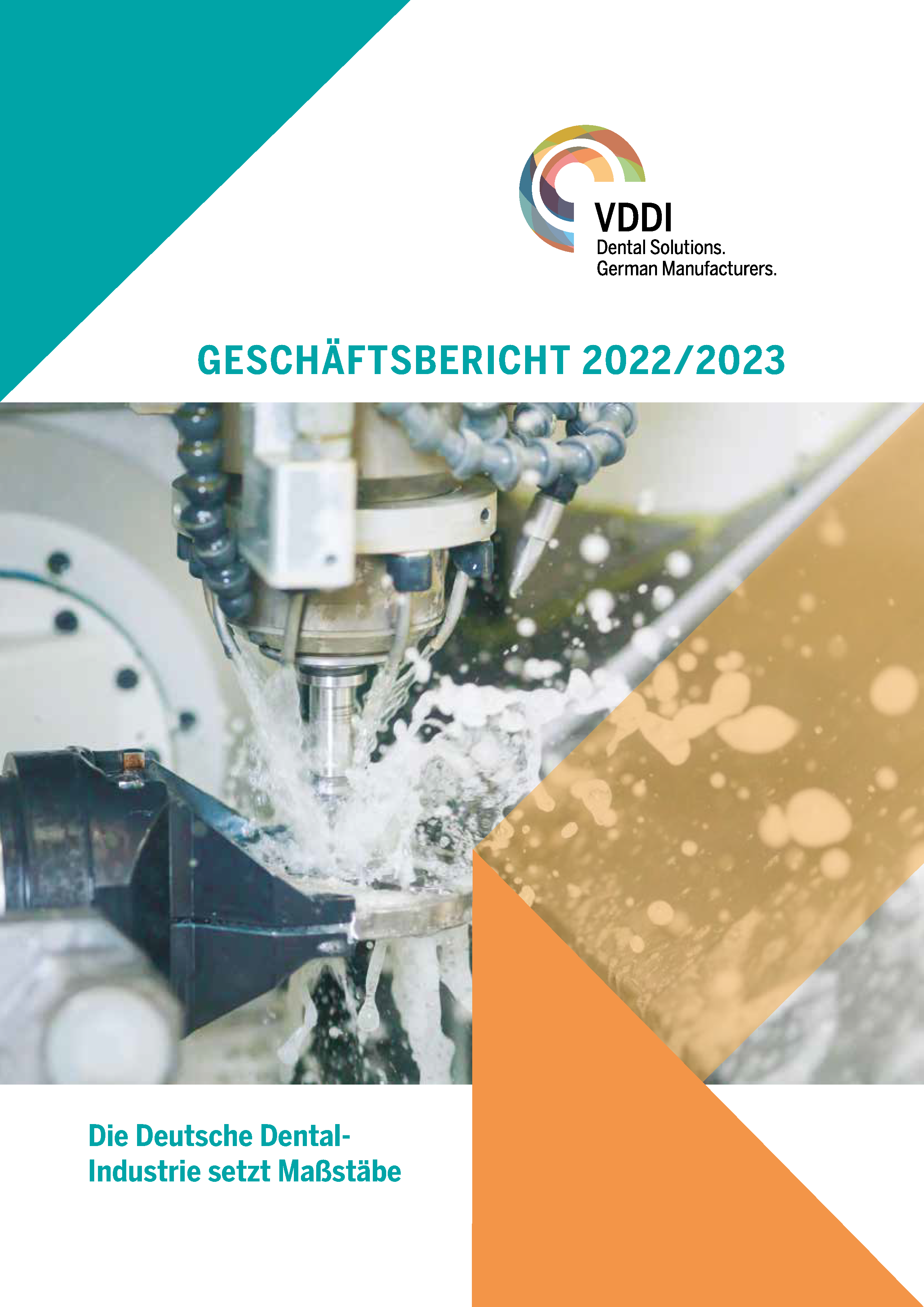Whereas brushing teeth is still accepted as the solid and absolutely necessary basis of oral care, the question that automatically arises is: "What can one do beyond that to ensure the health of the teeth and gums?
Among others, mouthwashes have come under increased attention over the past months. For example, a survey carried out by researchers at the Claude Bernhard Lyon 1 University that was presented at IDS 2021 came to the conclusion that mouthwashes can reduce the risk of virus infections. They already reduce the number of viruses in the mouth by 71% after one single rinse - welcome support for the immune system in fighting infections. Basically different antiseptic mouthwashes could be suitable for this purpose (i.e. which contain the active ingredients alcohol or chlorhexidine). At IDS, the visitors can gain a broad overview of the products available and their application according to the current state of scientific knowledge.
In addition to the trusted methods to prevent tooth decay, innovative approaches are evolving for special sections, for example in the field of orthodontics. It is a well-known problem: Oral care can be difficult when braces are in place. Fluoride varnish offers additional support here. Based on current studies, in the case of initial lesions a better effect can be achieved when it is applied in combination with the peptide P11-4.
Domestic oral care is best enhanced by professional measures - in the form of supragingival and, where necessary, subgingival measures. Here, mechanised processes have established themselves (i.e. ultrasound, sonar and powder jet devices), because the patients often find them more comfortable than when hand instruments are used. Furthermore, in the case of powder jet devices there are variable opportunities, for example glycine powder for cleaning more sensitive root surfaces underneath the edge of the gum or in deep, inflamed gingival pockets, sodium hydrogen carbonate for stubborn stains on the intact enamel of heavy smokers. In addition to the mechanised tools, hand instruments remain to be a practicable option - in the case of patients with severe respiratory diseases they may indeed be the only possibility.
In future, diet – and expedient supplements, especially probiotics – could play a more significant role. The idea behind this: If the human immune system can no longer prevent harmful bacteria from penetrating the body via the teeth due to unfavourable circumstances like "patient smokes" and/or "immune-compromised patient" and/or "patient has too much stress", one can supply health-promoting bacteria from the outside: probiotics. These probiotic strains (i.e. from types of lactobacilli and streptococci, bifidobacteria as well as the beer yeast saccharomyces cervisiae var. boulardi) can then help prevent potentially pathogenic bacteria from getting out of hand (i.e. Porphyromonas gingivalis, Tannerella forsythia, Treponema denticola).
IDS 2023 also additionally offers information on how the oral flora can be kept in balance with the aid of probiotics in various dosage forms - whether one adds the "good" bacteria in targeted dietary form and/or with the aid of dietary supplements (i.e. probiotic Lactobacillus reuteri strains). The aim is to provide a success-securing enhancement to brushing one's teeth regularly. In the case of a temporary restriction of adequate domestic oral care (i.e. after a serious illness), in the case of permanent clearly suboptimal domestic oral care (i.e. "patient simply doesn't manage more") or in the case of a constant, non-correctable proneness to inflammation (i.e. as a result of inflammations also in other parts of the body), the patient concerned benefits to a strong degree here. Probiotics can also significantly promote wound healing after professional periodontal prophylactic measures (i.e. "scaling and root planning") and reduce the probing depths.
After so many innovative aspects beyond brushing teeth: Innovations in precisely this area are also expected, for example in the case of special patients, making difficult to access areas accessible. One strategy here involves brush heads with specific angles, for instance a precise10-degree angle.
Cleaning one's teeth at home looks back on a history of several thousands of years. A significant improvement of the effectiveness of tooth brushes came about in the late-1930s after the horse hair used up until then was replaced by more effective nylon bristles. Electric toothbrushes have also been at the disposal of the patients since the 1960s. Oscillating or oscillating/rotating brush head movements have further increased the cleaning effectiveness since the late-1980s. Today, sonar and ultrasound brushes offer further alternatives to manual toothbrushes. The professional prophylactic instruments have also improved over the last decades so that there is a wide selection of manual instruments and mechanised processes today.
"We know two main oral diseases, tooth decay and periodontitis, the prophylactic measures on the other hand are far-reaching," noted Mark Stephen Pace, Chairman of the VDDI e.V. (Association of the German Dental Manufacturers). "So, in addition to the trusted concepts, I am expecting different innovative solutions in the section of domestic and professional oral care. Because we the dental industry think ahead here and develop ideas that may indeed also be interesting for others subsequently. At IDS in Cologne from 14 to 18 March 2023, we will at the same time be celebrating 100 years of the International Dental Show. This is going to be a particularly forward-looking event for our entire community and particularly for the developments in dental prophylaxis – perhaps with an odd extra innovation to commemorate the anniversary."
IDS takes place in Cologne every two years and is organised by the GFDI Gesellschaft zur Förderung der Dental-Industrie mbH, the commercial enterprise of the Association of German Dental Manufacturers (VDDI). It is staged by the Koelnmesse GmbH, Cologne.
Note for editorial offices:
IDS photos are available in our image database on the Internet at www.english.ids-cologne.de/imagedatabase
Press information is available at www.english.ids-cologne.de/pressinformation
Copyright for press information: IDS Cologne - If you reprint this document, please send us a sample copy.
Your contact:
For details and information on the dental industry:
VDDI/GFDI - Press Office
Burkhard Sticklies Agnes Plümer
sticklies(at)vddi.de / pluemer(at)vddi.de


